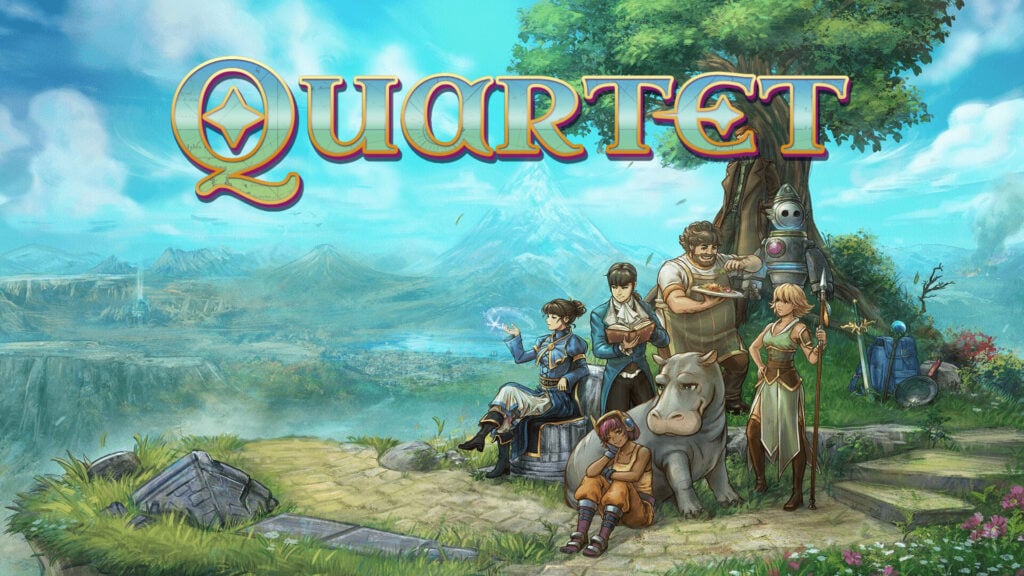The label “classic” and “JRPG” are nearly synonymous with one another, according to history. It can be said that the RPG format would revolutionize the gaming industry. Decades after the first ever RPG games released, the genre is very much alive and still evolving with multiple new titles a year in all sorts of variety. When it comes to indie games taking tribute from the greats of JRPG history, there is a new standout as “Quartet” captures the nostalgia aspect of RPGs, while keeping the formula simple and engaging.
The first thing that needs to be mentioned is the visuals, as pixel art will never lose its charm, and “Quartet” takes full advantage of this. With a style that is reminiscent of classic JRPG games like “Final Fantasy” and “Chrono Trigger”, “Quartet” fits almost perfectly with the art style of role-playing games from the 80s and 90s. That is not all though, as along with the art style, the audio components match up to complete the atmosphere of a role-playing game.

The pixel art style is almost necessary to complete the classic JRPG image, but sound – that is, music, ambiance noises, and sound effects – is often not included while discussing either RPG or JRPG games. Quartet on the other hand, proves how important – and how efficient – the audio portion of any role-playing game can elevate the experience. These two aspects combine to create an experience that is memorable.
But there is also the story aspect of course, and the game follows the playable characters are Alexandra, Ben, Cordelia, and Nikolai, who set out to avoid a war being fought over magic. It sounds basic at first, but it gets deep quickly, with plenty of twists and turns along the way. A critical aspect in RPGs – and JRPGs, for that matter – is the character and NPC dialogue, as while some of the most legendary quotes in video games can be linked to role-playing games, the inverse can also be attributed to the genre: it can prove to be redundant and unnecessary. That is not a concern here, as regardless of the player’s choice, the dialogue lines from the heroes adds to the story without missing a beat, effectively making dialogue worth reading.

Regarding the gameplay, “Quartet” keeps the play style simple with turn-based mechanics, numbered health/ability level displays, action menu in the style of a list, and a front-facing battle layout. More elements from classic role-playing games include the inclusion of spells, buffs, debuffs, and elemental damage. Perhaps the one defining element that I’ve only found in “Quartet” is the option to choose which difficulty level the player wants to experience, the choices being “easy”, “normal”, and “hard”.
While the traveling on every role-playing game can get redundant, “Quartet” does relatively well in balancing linear treks and exploring. The combination of classic RPG elements with improvements to screen navigation and gameplay mechanics creates a one-of-a-kind experience, but it also brings up the possibility of revamping classic RPGs by including some of the improvements found in “Quartet”. The developers at Something Classic Games lived up to their name here by understanding what made the classics work and what made them stand out so well.

Overall, JRPG enthusiasts will enjoy “Quartet” for its gameplay, visuals, and story. As far as identifying issues, I only found that the more time you play, the game can drag on in some points and even feel dull at points, but fortunately, this is not the case with the overall game in the latter half. With the amount of attention to detail and effort put in here, you can really appreciate this game and the sheer devotion for the role-playing genre is certainly seen when you play “Quartet”. This is something special and worth playing.
Disclaimer: A review key was provided

